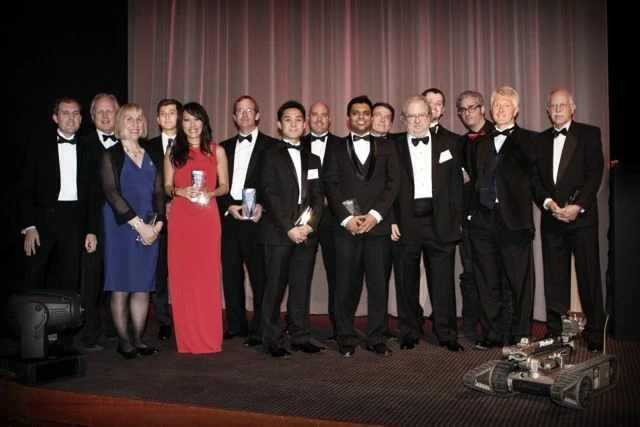
Partner Article
Winners announced for The Economist’s Innovation Awards 2013
The Economist has announced the winners of the Innovation Awards 2013.
Now in their 12th year, The Economist’s Innovation Awards celebrate individuals who have been responsible for an innovation that has transformed the world we live in.
Among the host of leading innovators celebrated at this year’s Innovation Awards are the pioneers of 3D printing, the founder of iRobot and the developers of a low-cost incubator which reduces neonatal death in the developing world.
This video features interviews with [insert interviewees] as they discuss how their innovations have made a difference to their industries and their thoughts on the importance of driving innovation.
The winners were selected for their significant contributions across eight fields by an independent judging panel comprising qualified experts and innovators from leading industries and academia. The winners and their categories are;
BIOSCIENCE
James Allison for an “immune checkpoint blockade” cancer therapy which reactivates the body’s defences in order to respond to a tumour that has evaded the immune system.
COMPUTING AND TELECOMMUNICATIONS
Steve Furber and Sophie Wilson, the co-creators of the power-efficient ARM processor that powers most of the world’s mobile phones. Its “reduced instruction set computing” design was intended to boost performance, but unexpectedly proved to be amazingly energy-efficient too.
CONSUMER PRODUCTS
Chuck Hull of 3D Systems and Bre Pettis of MakerBot for pioneering and popularising 3D printing. Mr Hull, who invented a process called stereolithography in the 1980s, is considered the father of 3D printing; Mr Pettis, founder of MakerBot, turned it into an accessible and affordable product, in the form of a desktop 3D printer.
ENERGY AND THE ENVIRONMENT
Tim Bauer, Nathan Lorenz and Bryan Willsonco-founders of Envirofit, for developing a compact stove that reduces indoor pollution by cutting smoke, toxic emissions, biomass consumption and cooking time compared with traditional designs.
NO BOUNDARIES
Colin Angle, founder of iRobot, for developing practical robots for domestic, defence, security, medical and business use, from the floor-cleaning Roomba to the bomb-defusing PackBot.
PROCESS AND SERVICE INNOVATION
Salman Khan,founder of Khan Academy, for creating a free online-education platform that now serves more than 10m students each month and has delivered more than 300m lessons.
SOCIAL AND ECONOMIC INNOVATION
Jane Chen, Rahul Panicker, Naganand Murty and Linus Liang of Embrace, for developing a low-cost incubator to reduce neonatal deaths in the developing world. More than 20,000 babies in a dozen countries have benefited from its design, similar to a sleeping bag.
CORPORATE
Genentech, a pioneer of the biotechnology industry, the firm has made several breakthrough innovations, including the first recombinant DNA medicine ever marketed, and therapies for cancer and age-related vision loss.
The winners were announced at an exclusive ceremony at BAFTA theatre in London on 3rd December.
This was posted in Bdaily's Members' News section by Steve Nixon .








 Raising the bar to boost North East growth
Raising the bar to boost North East growth
 Navigating the messy middle of business growth
Navigating the messy middle of business growth
 We must make it easier to hire young people
We must make it easier to hire young people
 Why community-based care is key to NHS' future
Why community-based care is key to NHS' future
 Culture, confidence and creativity in the North East
Culture, confidence and creativity in the North East
 Putting in the groundwork to boost skills
Putting in the groundwork to boost skills
 £100,000 milestone drives forward STEM work
£100,000 milestone drives forward STEM work
 Restoring confidence for the economic road ahead
Restoring confidence for the economic road ahead
 Ready to scale? Buy-and-build offers opportunity
Ready to scale? Buy-and-build offers opportunity
 When will our regional economy grow?
When will our regional economy grow?
 Creating a thriving North East construction sector
Creating a thriving North East construction sector
 Why investors are still backing the North East
Why investors are still backing the North East